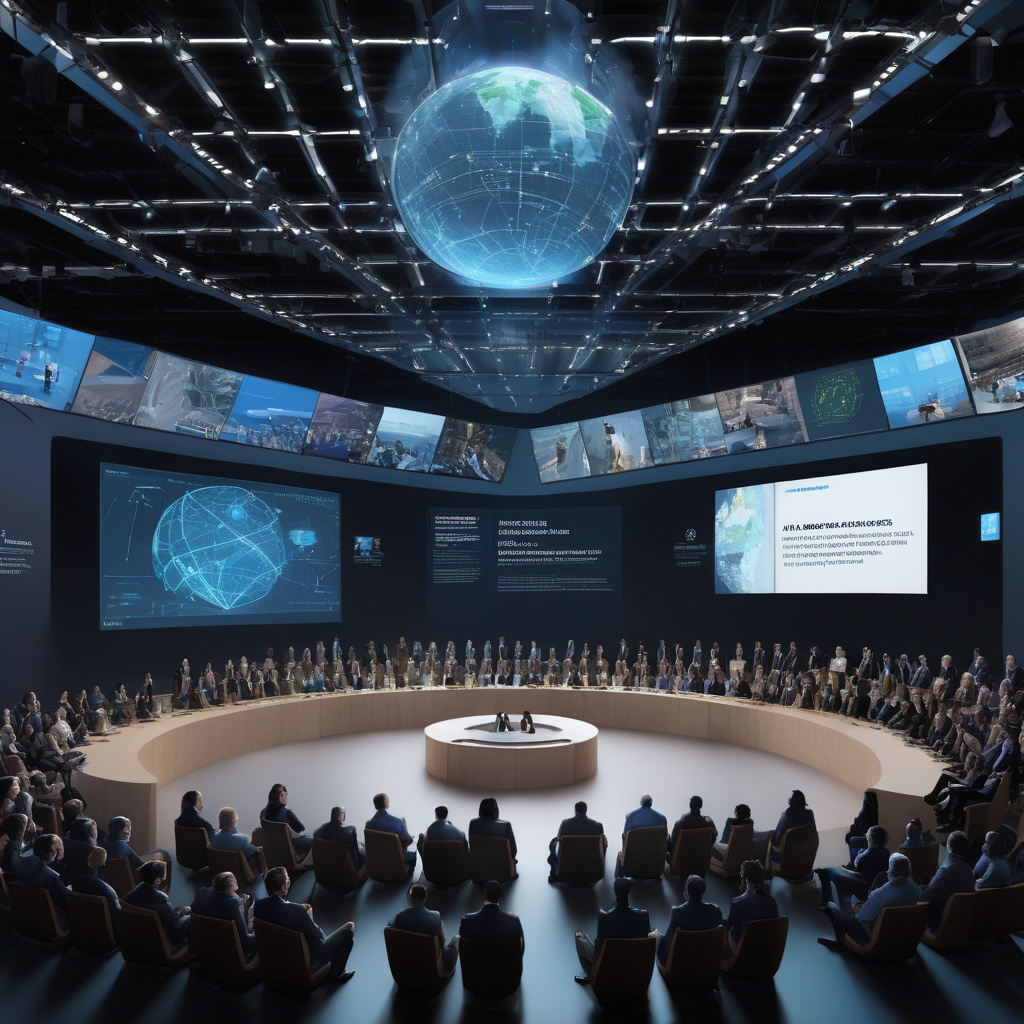AI and the Future of Work: Navigating Risks, Promises, and Urgent Decisions
The rapid advancement of Artificial Intelligence (AI) is revolutionizing industries and transforming the nature of work as we know it. As global leaders and innovators gather to discuss the impact of AI on the future of work, a critical question looms large: How can we guarantee that the advantages of AI are distributed equitably before the chasm widens between technological progress and societal inequality?
The emergence of AI technologies has sparked a wave of automation across various sectors, streamlining processes, enhancing productivity, and driving innovation. From predictive analytics to personalized recommendations, AI-powered tools are revolutionizing how businesses operate and interact with customers. However, this wave of disruption also brings to the fore the potential risks and challenges associated with the widespread adoption of AI in the workplace.
One of the primary concerns surrounding AI and the future of work is the looming specter of job displacement. As AI algorithms become increasingly sophisticated and capable of performing tasks traditionally carried out by humans, there is a growing apprehension about the impact on employment levels and job security. Studies suggest that AI and automation could lead to the displacement of millions of jobs globally, particularly those that involve repetitive or routine tasks.
Moreover, the unequal distribution of AI’s benefits poses a significant challenge to achieving a fair and inclusive future of work. As AI technologies become more prevalent, there is a risk that the economic gains generated by increased efficiency and productivity may accrue disproportionately to a select few, exacerbating income inequality and widening the gap between the haves and the have-nots.
The recent global forum on AI and the future of work underscored the urgent need for policymakers, industry leaders, and stakeholders to proactively address these challenges and chart a path towards a more equitable and sustainable future. Key themes that emerged from the discussions included the importance of upskilling and reskilling the workforce to adapt to the demands of an AI-driven economy, fostering collaboration between governments, businesses, and educational institutions to bridge the digital skills gap, and implementing policies that promote inclusive growth and ensure that the benefits of AI are shared widely across society.
For instance, initiatives such as apprenticeship programs, lifelong learning opportunities, and skills development initiatives can help workers acquire the skills needed to thrive in an AI-powered environment. By investing in education and training programs that equip individuals with the tools to leverage AI technologies effectively, we can empower workers to navigate the changing landscape of work and seize new opportunities for growth and advancement.
Furthermore, fostering a culture of innovation and entrepreneurship can enable individuals and communities to harness the transformative potential of AI to create new business ventures and drive economic growth. By supporting startups and small businesses in adopting AI technologies and integrating them into their operations, we can foster a more dynamic and resilient economy that benefits all stakeholders.
In conclusion, the future of work in the age of AI holds immense promise, but it also presents profound challenges that require urgent attention and decisive action. By embracing a collaborative and inclusive approach to navigating the opportunities and risks posed by AI, we can shape a future where technological progress is synonymous with shared prosperity and societal well-being. The time to act is now.
AI, FutureOfWork, InclusiveGrowth, DigitalTransformation, EconomicEquality
